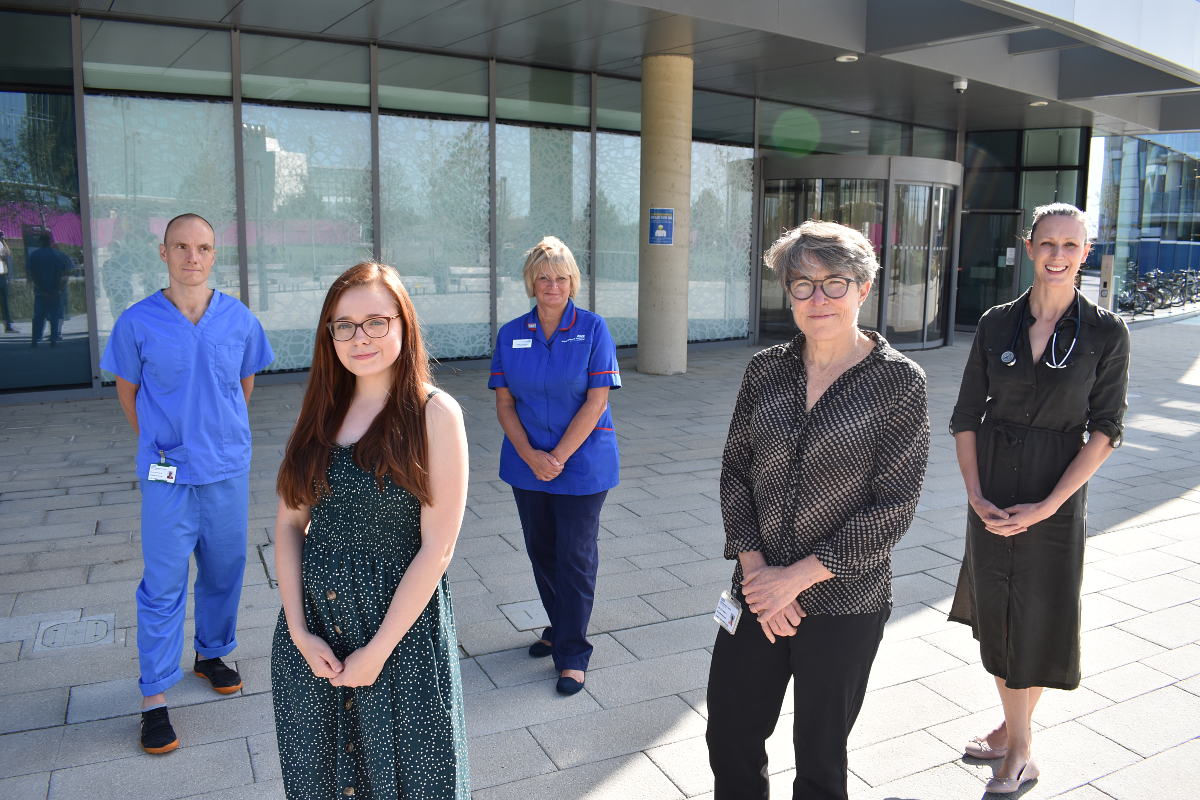The established multi-disciplinary specialist valve, structural and TAVI clinics ensure a rapid and robust assessment of patients providing structural heart interventions to the East of England and nationally.
Royal Papworth Hospital has a high volume transcatheter aortic valve implantation (TAVI) programme and is the national centre for balloon pulmonary angioplasty, a novel treatment for pulmonary hypertension.
The hospital has a longstanding expertise in mitral valve interventions, including:
- percutaneous transcatheter mitral commissurotomy (valvuloplasty)
- percutaneous mitral valve repair (Mitraclip)
- percutaneous closure of patent foramen ovale (PFO)
- atrial septal defects (ASD)
- left atrial appendage closure (LAAC) to reduce stroke risk in patients with atrial fibrillation
We are a nationally accredited level 2 adult congenital heart disease (ACHD) centre.
Transcutaneous aortic valve insertion (TAVI)
The TAVI procedure is an alternative to open heart surgery to deal with various types of aortic valve disease but mainly Aortic Stenosis. This is a chronic disease resulting in narrowing of the aortic valve and obstruction to blood flow, causing symptoms such as breathlessness and with a high mortality if left untreated. The procedure is performed by cardiologists and surgeons working together usually via the femoral artery (an artery at the top of the leg) or the carotid artery (an artery in the neck) and usually under sedation without the need for a general anaesthetic. As a result, patients can often go home within 48 hours of the procedure. Further information about the procedure and aortic stenosis in general can be found in the patient information link below.
Royal Papworth was one of the first centres in the UK to start implanting aortic valves this way. The service was set up in 2008 by Dr Cameron Densem with Dr Len Shapiro. The 500th case was performed in 2018. Our yearly TAVI case rate has subsequently increased dramatically reflecting the international rapid increase in its use as more data about its efficacy and durability has been produced. Our current yearly implantation rate is between 250 and 300 procedures a year, one of the highest volume centres in the UK and is likely to increase further.
MitraClip
The Mitraclip procedure is a novel technique to treat certain types of regurgitant (leaky) mitral valves, especially useful in those patients deemed high risk for an open-heart operation to repair the leak. The procedure is carried out via the femoral vein at the top of the leg using a small incision and under general anaesthesia with ultrasound and X-ray guidance. More than 50,000 Mitraclip procedures have been performed internationally and
evidence of its benefit to patients is accruing. Royal Papworth began implanting Mitrclips in 2020 with very good early outcomes. We hope to greatly expand the service in the coming years.
Mitral Valvuloplasty
Mitral valvuloplasty is a durable treatment for some forms of mitral stenosis (constriction). It involves inflation of a balloon, inserted via the femoral vein in the upper leg, inside the valve to expand it and help increase blood flow through it. The incidence of mitral stenosis has decreased in the Western world due to a decrease in rheumatic fever therefore the procedure is now infrequently performed in the UK. Royal Papworth historically remains one of the highest volume centres nationally with very experienced operators.
Patent foramen ovale
Patent foramen ovale (PFO) refers to a defect in the atrial septum (hole in the heart) which is sometimes the cause of stroke in the young and can occasionally be implicated in other conditions. It is a very common defect in the population and only rarely associated with any problems however. In the small subset of the population in whom it has been implicated in stroke, consideration of closure is discussed by a multidisciplinary team including cardiologists, surgeons and stroke physicians.
Percutaneous closure of PFO
The procedure is performed via the femoral vein under general anaesthetic with ultrasound and x-ray guidance via a small incision in the upper leg. The complication rate is extremely low. Royal Papworth has a long history of implanting a variety of devices to close these defects and our operators perform the procedure between 50 and 100 times a year with excellent results.
Adult Congenital Heart disease
Congenital heart disease is a general term for a range of birth defects that affect the normal workings of the heart and great vessels. Congenital means a condition that is present at birth. This is cover in more detail on the Adult Congenital Heart disease section of this website.

